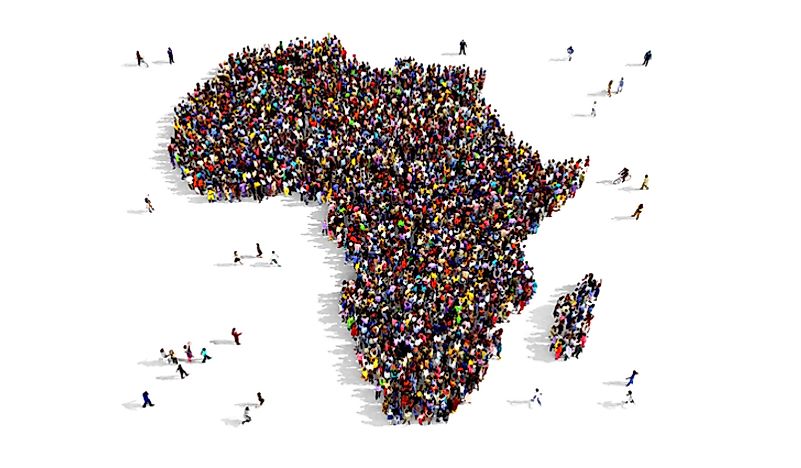How Many People Live In Africa?

Africa occupies roughly 20% of the Earth's total landmass. That makes the continent the second largest in the world after Asia. The population of Africa was estimated to be over 1.25 billion in 2017 making it the second most populous continent in the world after Asia. Africa’s population growth has caught many experts off guard due to the rapid increase in the past couple of decades. The continent, which hit the 1 billion mark back in 2009, has more than doubled its population in the past 27 years. The statistics represent a stark contrast to global population trends which are plateauing in some nations and decreasing in developed nations such as Germany and Japan. Many demographers in the world expected that Africa’s population increase would gradually align to the global average over time just like that of Latin America and Asia which in the 1970’s had a fertility rate of 5 children per woman. This, however, has not been the case.
Population Increase in Relation to Well-Being
Africa’s population growth is especially worrying given that almost all nations on the continent are classified as developing. The continent is also home to some of the poorest nations in the world and is likely to experience a social-economic crisis in the future if the population increase goes unabated. Currently, Africa's population is increasing at the rate of 30 million people per year, and this number is set to increase to 42 million per year by 2050. Estimates from the UN Population indicate that the continent’s population might hit the 2.5 billion mark by the year 2050 and 4.5 billion by the year 2100 which will represent 40% of the world's population.
Factors Leading to Population Growth
It is thought that the continent's population growth is as a result of increased access to health services across the continent resulting in a decrease in infant mortality rate as well as an increase in life expectancy. The continent's fertility rate (average number of children a woman is likely to have in the course of her lifetime) also remains higher than the global average. The average woman in the rest of the world is likely to have 2.5 children in her lifetime while the average African woman is likely to have 4.7 children in her lifetime.
Population Control Measures
Countries in Africa are increasingly improving civil awareness of family planning methods. Countries such as Kenya and Zambia are already attaining success in the field. Currently, an estimated 45% of married women in Zambia use contraceptives and other modern family planning methods while in Kenya 58% of the married women used contraceptives. Despite rigorous national family planning campaigns by various governments in Africa, there are still numerous challenges inhibiting the adoption of modern contraceptives. Some of the challenges include cultural norms, male opposition, religion, and misinformation.











